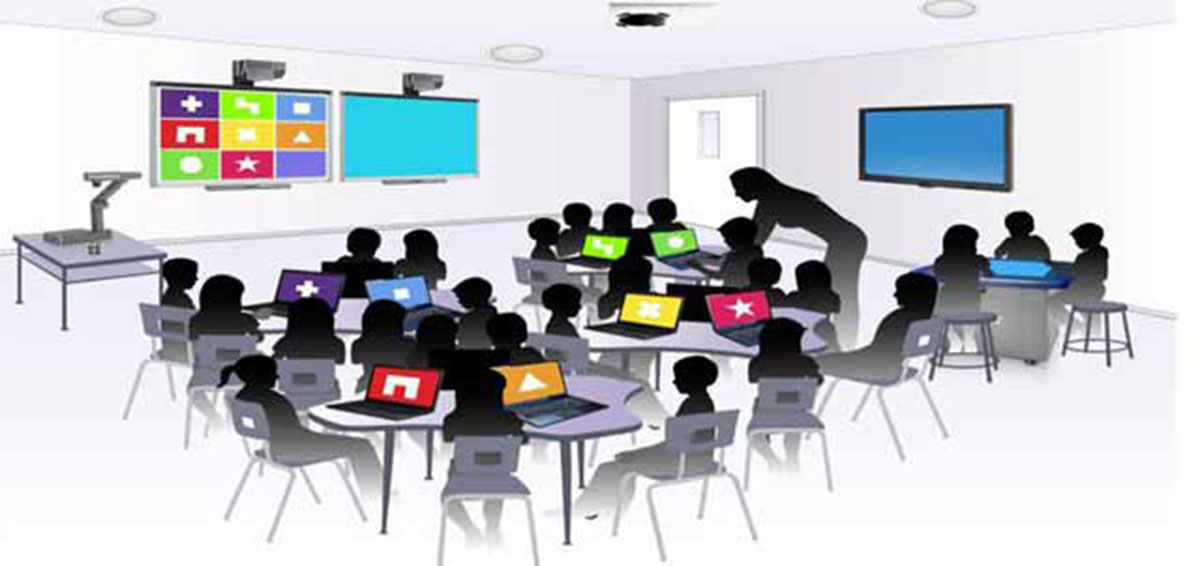by Er Sheikh Aaqib
Our classrooms prepare students for a world that no longer exists.

Does not it look ridiculous that a decades-long learning process engulfs your prime years in classrooms and drains a substantial chunk of your finances, offering only meagre rewards in return? The opportunity cost for such a marginal return is undeniably enormous.
The syllabus taught in schools often appears outdated and inadequately updated. It prepares students for a world that no longer exists, which is the primary reason why corporations find it necessary to provide additional training to fresh graduates, even if they hold bachelor’s and master’s degrees in the same field.
A two-decade-long education fails to impart knowledge about investing in market funds, mutual funds, dividend stocks, cryptocurrencies, real estate, and other crucial financial matters. It lacks any emphasis on nurturing, debating, or mentoring business ideas.
Instead, the school system seems designed to produce individuals destined for traditional employment rather than encouraging entrepreneurship. This could explain why notable entrepreneurs like Elon Musk, Bill Gates, Steve Jobs, and Mark Zuckerberg chose to drop out of school and went on to establish some of the world’s largest businesses.
In school, the primary focus often revolves around achieving good marks or grades. Simply presenting a piece of information neatly with proper highlights can lead to excellent results. However, life poses much tougher challenges and repeatedly puts us to the test. The school system tends to limit knowledge to its prescribed syllabus and recommended books.

In the present day, we have access to storage devices and cloud technology, rendering extensive memorization of formulas unnecessary. Advanced tools like Excel, Tableau, Risk, and SPSS are available to assist with complex calculations. Yet, the school environment may not encourage the awareness of these resources, as it tends to assess memory retention rather than fostering true intelligence.
Indeed, schools operate as businesses, providing a service that consumes a significant portion of students’ productive time while selectively withholding information they might not want students to know. Parents often pay substantial sums as fees and are burdened with the responsibility of helping with homework. Schools seem unwilling to take full accountability for their role.
The standard seven hours of classroom time are insufficient to consider the day complete, as schools impose additional homework, adding to the stress of both students and parents. This raises the question of what schools are paid for if parents have to assume the responsibility of ensuring their children learn. Ideally, parents should be able to spend quality and enjoyable time with their children after a long day at work, but the burden of homework often impedes this possibility. Schools should take more responsibility for fulfilling the duties they are paid to perform.
The school dictates the type and colour of formal attire for everyone. While the concept may aim for uniformity, the truth is that each individual’s journey is distinct. The enforced uniform dress code can lead to discrimination based on grades and may exploit and humiliate those who struggle with specific subjects.
Why can’t children feel comfortable and learn in casuals? Instead, parents are burdened with the task of maintaining clean formal attire, diverting attention from the core focus of learning. Schools seem preoccupied with other matters, neglecting the primary goal of education. In the corporate world, particularly the IT industry, a trend of wearing T-shirts and jeans has emerged, allowing individuals to focus on their work rather than their attire. Why can’t schools embrace such flexibility or at least be open to welcoming and incorporating similar trends?
Who has granted teachers the right to physically punish and verbally abuse students? Such actions violate the basic rights of young individuals at a tender age. It is high time for schools to evolve and eradicate such practices. It is unacceptable that the educational system has remained relatively unchanged for centuries, especially in this era of technological advancements like the Internet of Things (IoT), Artificial Intelligence (AI), Electric Cars (EVs), Blockchain, and Intelligent Automation, while schools continue to teach outdated content like the concept of wheels.

The purpose of college is no longer education. We can learn whatever we want online, at the time and place of our choosing. The purpose of college is to add big brands to resumes and discover ourselves. It is to create opportunities like networking, internships, placements, mentors and recommendations.
The solution is simple, exit when it stops to make sense. Start what makes. Self-learning saves time. Time is money. And money is the solution to most of our problems.
(The author is a NICMARian and works as Planning Engineer at Shapoorji Pallonji International. The opinions expressed in this write-up are those of the author and do not purport to reflect the views of Kashmir Life.)














